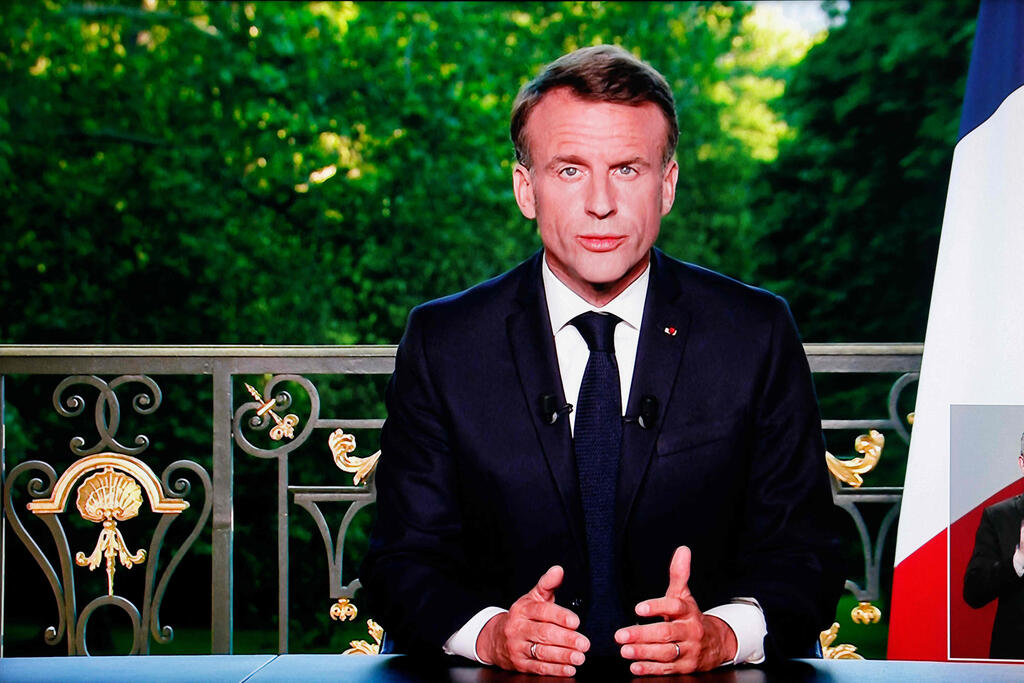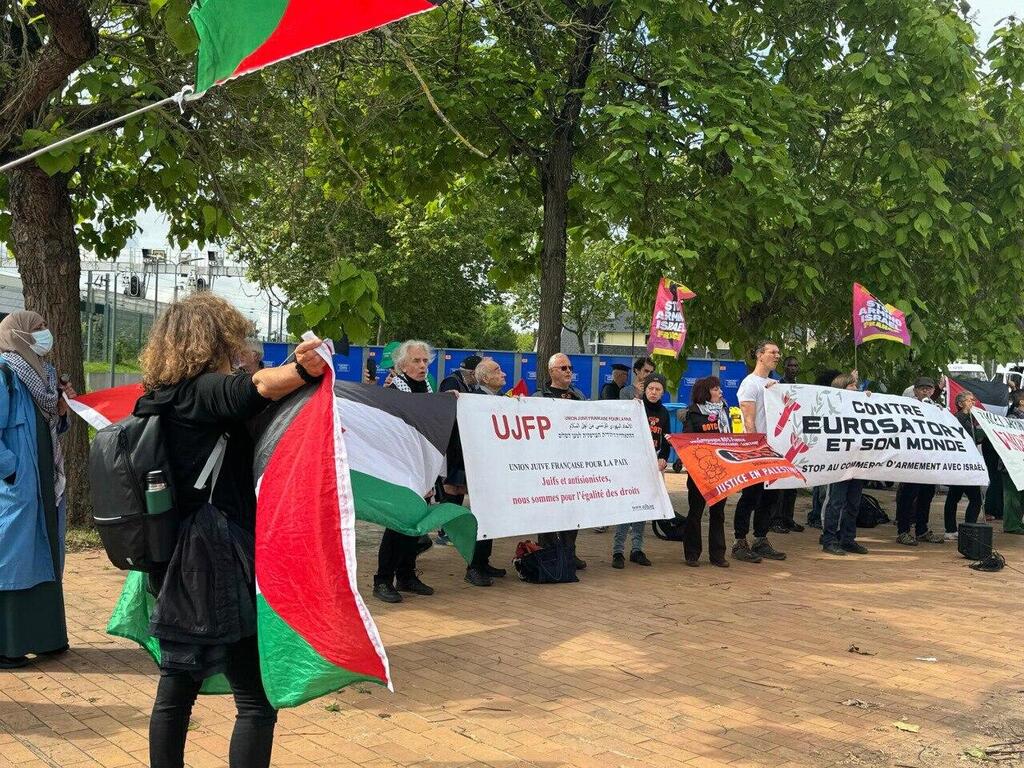The French attempt to "reprimand" Israel following its military operations in Gaza, culminating in the ban on Israel's participation in the Eurosatory arms exhibition, (which has since been overturned) has coincided with France's own internal crisis.
The unexpected early election announcement by President Macron last weekend came on the heels of the far-right National Rally party's success in the European Parliament elections. Members of the radical left-wing party Rebellious France rode the wave of the Gaza conflict throughout their campaign, waving Palestinian flags and depicting Israel as committing war crimes. Now, as left-wing parties unite ahead of France's national elections, the country is once again engulfed in a wave of racism and antisemitism from both the right and the left.
Contrary to France's negative image regarding support for Israel, French authorities are unwavering in their fight against antisemitism. Macron himself, along with Prime Minister Gabriel Attal, frequently visits sites of antisemitic attacks to show solidarity with the Jewish community. However, is this enough to curb the rise in antisemitic and anti-Israeli incidents?
France is home to the largest Jewish and Muslim communities in Europe, and Macron is trying to juggle all interests, with looming fears of riots or attacks during the upcoming Paris Olympic Games. Meanwhile, Israel finds itself right in the middle of the struggle against extremists on both sides – the French government's desire to express its displeasure with Israel's actions in Rafah becomes a tool in the hands of the BDS movement.
Macron is a man playing both sides. For example, while France expressed support for recognizing a Palestinian state, the president clarified that the conditions were not yet ripe. On the matter of the International Criminal Court, he declared his support for the institution but opposed issuing warrants against Prime Minister Benjamin Netanyahu, Defense Minister Yoav Gallant and IDF Chief of Staff Herzi Halevi. France also shelved a proposal on resolving the conflict at the UN Security Council when it was clearly against Israeli interests, and participated in the operation to defend Israel during the Iranian attack. Add to this the fact Israel and France are aligned on their stance regarding the Iranian nuclear issue, and it's clear why the French are not pleased with being lumped together with countries like Ireland or Spain.
On the Israeli side, foreign and domestic policies intertwine as well. The Defense Ministry was deeply upset about the expected blow to defense exports following the cancellation of participation in Eurosatory, and Gallant feels more comfortable with Amos Hochstein, Biden's envoy for negotiations with Lebanon, than with Jean-Yves Le Drian, appointed by Macron and closer to the Lebanese government. On the other hand, Israelis have often used French diplomacy to send messages to Lebanon and other Arab countries, and the relations between the two foreign ministries are very cordial. It turns out that Israel, too, knows how to play both sides.
The bottom line is that the relationship between Israel and France should be judged by actions on the ground. In 2023, France exported weapons worth 208 million euros to Israel. French companies like Alstom and Egis collaborate with Israeli companies in building the light rail and metro, and just last May two France-Israel Business events were organized in France. At exhibitions like Vivatech or HealthTech, which combine technology and health, meetings are arranged between Israeli entrepreneurs and local French companies.
Palestinian flags seen at protests against the far-right caused joy for some and discomfort for others. Strangely enough, this has little to do with us. The relationship between Israel and France involves frequent quarrels and reconciliations and remains stable in that sense. The French are uncertain about what will change after the elections, but it's clear that at the moment, we're not their top priority.



